| Coffee export prices plummeted after several record highs Coffee export prices plummeted after several record highs |
At the end of the trading session on April 30, world coffee prices fell across the board, with Robusta coffee prices dropping more than 3% due to unseasonal rains in the Central Highlands (Vietnam), helping to ease the prolonged drought in coffee farms. Coffee prices also fell to their lowest level in nearly 3 weeks as the market recorded some more positive signals about supply.
Specifically, on the ICE Futures Europe exchange, the price of Robusta coffee for delivery in July 2024 decreased by 143 USD/ton, at 4,021 USD/ton; delivery in September 2024 decreased by 148 USD/ton, at 3,940 USD/ton.
However, analysts say this is only a temporary adjustment as Vietnam’s 2024/2025 coffee output still faces many risks. The Central Highlands region is expected to witness more peak heat waves before the rainy season begins in June. In addition, in March, Vietnam exported only 3,093.4 tons of coffee, down 59% compared to the same period last year, mainly due to supply shortages.
On the ICE Futures US exchange, the price of Arabica coffee for July 2024 delivery decreased by 13.85 cents/lb, to 213.65 cents/lb; the price of September 2024 delivery decreased by 14 cents/lb, to 211.8 cents/lb.
Moving in the same direction, Arabica prices fell to a near three-week low amid signs of improving supply.
Coffee exports from Brazil continued to increase in April. According to preliminary statistics from the Brazilian Coffee Exporters Association (CECAFE), as of April 30, the South American country exported about 4.6 million bags of coffee, including 3.5 million bags of Arabica beans, up 27% over the same period last month.
Coffee harvesting in Brazil has now begun. Progress has been slow, but dry weather in the main coffee growing regions will accelerate the pace in the coming months, giving Brazilian farmers more reason to boost sales.
Domestic coffee prices in April 2024 continued to increase at an unprecedented rate, up to 35,000 VND/kg. Today, May 1, coffee is trading in the range of 132,700 - 133,500 VND/kg.
According to a survey, today's coffee prices in the Central Highlands region decreased by 1,200 VND/kg. Specifically, today's coffee prices in Lam Dong decreased by 1,200 VND/kg, down to 132,500 VND/kg.
Coffee prices today in Gia Lai decreased by 1,200 VND/kg, down to 133,000 VND/kg; in Dak Lak, decreased by 1,200 VND/kg, down to 133,000 VND/kg.
Meanwhile, today's coffee price in Dak Nong decreased by 1,200 VND/kg, down to 133,200 VND/kg. However, in general, in April 2024, domestic coffee prices still increased by more than 36% (equivalent to an increase of about 36,000 VND/kg), continuously breaking records.
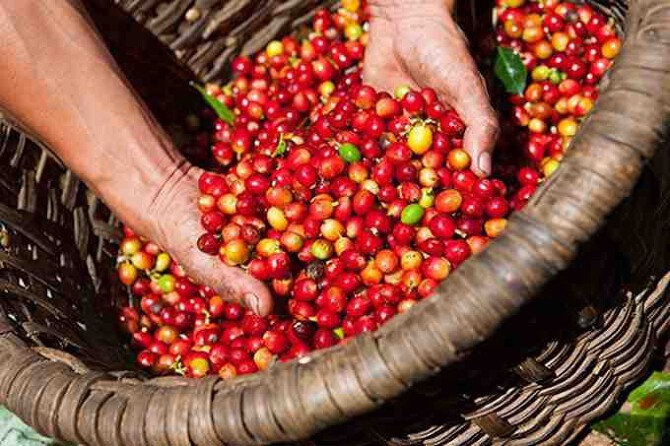 |
| The average export price of coffee in April 2024 continued to increase, reaching 3,791 USD/ton, up 6.6% over the previous month and up 55.4% over the same period in 2023. |
According to the General Statistics Office, coffee exports in April 2024 reached 170,000 tons, with a turnover of more than 644 million USD, down 10.0% in volume and 4.1% in turnover compared to the previous month; up 3.9% in volume and up sharply 61.5% in turnover compared to the same period in 2023.
In the first 4 months of 2024, coffee exports reached 755,696 tons, with a turnover of more than 2.57 billion USD, up 5.4% in volume and a sharp increase of 57.9% in turnover over the same period in 2023.
The average export price of coffee in April 2024 continued to increase, reaching 3,791 USD/ton, up 6.6% over the previous month and up 55.4% over the same period in 2023. In the first 4 months of 2024, the average export price of coffee reached 3,402 USD/ton, up 49.7% over the same period in 2023.
Large hedge funds and asset managers have reduced their net long positions in New York coffee futures, a development that some technical analysts believe could trigger a correction in Arabica prices from a high of 245 cents to 220-230 cents for the July 24 contract.
Meanwhile, a global shortage of Robusta coffee, caused by a lower-than-expected crop in Vietnam and a lack of rain threatening the next Robusta crop, has sparked growing interest in Brazil’s Conillon. However, the world’s largest coffee exporter, Brazil, has begun harvesting but supply is likely to be reduced. The reason is that the peak heat wave in late 2023 will bring a risk of a 5-10% reduction in the current Robusta harvest. Supply pressure is further compounded by Indonesia’s delay of harvest to June due to late-ripening coffee.
Weather forecasts show rain next week in Vietnam, with more concentrated in the northern provinces. However, in the central and southern regions, rainfall is still insufficient to keep the fruit in dry land, maintaining warning signs and concerns about the risk of a poor harvest in Vietnam next season. If the crop is poor next season, it will lead to a shortage of robusta coffee for another year.
In Indonesia, humidity is forecast to ease next week, but fruit growth has slowed due to excess moisture in recent times, with new coffee supplies only expected to increase significantly in May.
The April update to the National Oceanic and Atmospheric Administration’s El Niño and La Niña forecasts has raised the likelihood of La Niña occurring between June and August to 60%. This could contribute to a drier period and allow polar air masses to penetrate Brazil’s coffee growing regions, further fueling the “weather market” as winter approaches.
A poor crop in Vietnam next season will mean another year of Robusta shortages. The solution is to incorporate Arabica into the blend, but the transition is not happening as quickly as expected. As a result, Robusta continues to trend upward.
Source





![[Photo] Welcoming ceremony for Prime Minister of the Kingdom of Thailand Paetongtarn Shinawatra on official visit to Vietnam](https://vphoto.vietnam.vn/thumb/1200x675/vietnam/resource/IMAGE/2025/5/16/cdd9e93739c54bb2858d76c3b203b437)
![[Photo] Prime Minister Pham Minh Chinh holds talks with Prime Minister of the Kingdom of Thailand Paetongtarn Shinawatra](https://vphoto.vietnam.vn/thumb/1200x675/vietnam/resource/IMAGE/2025/5/16/23b5dd1e595d429491a54e3c1548fb79)

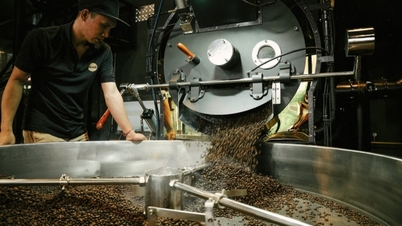
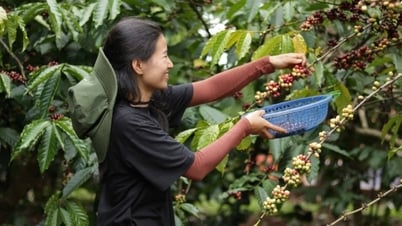

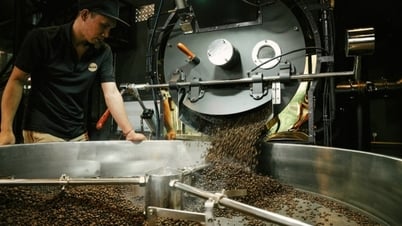
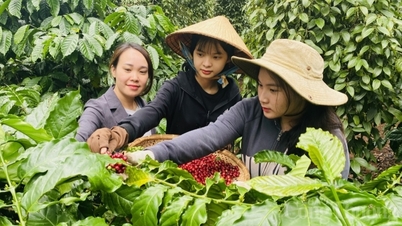
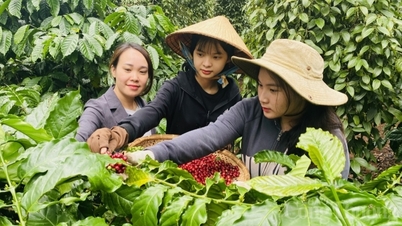



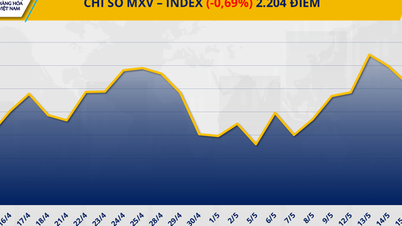









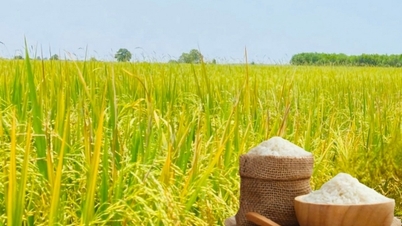
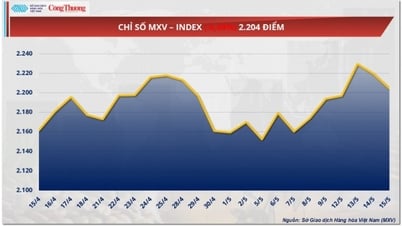



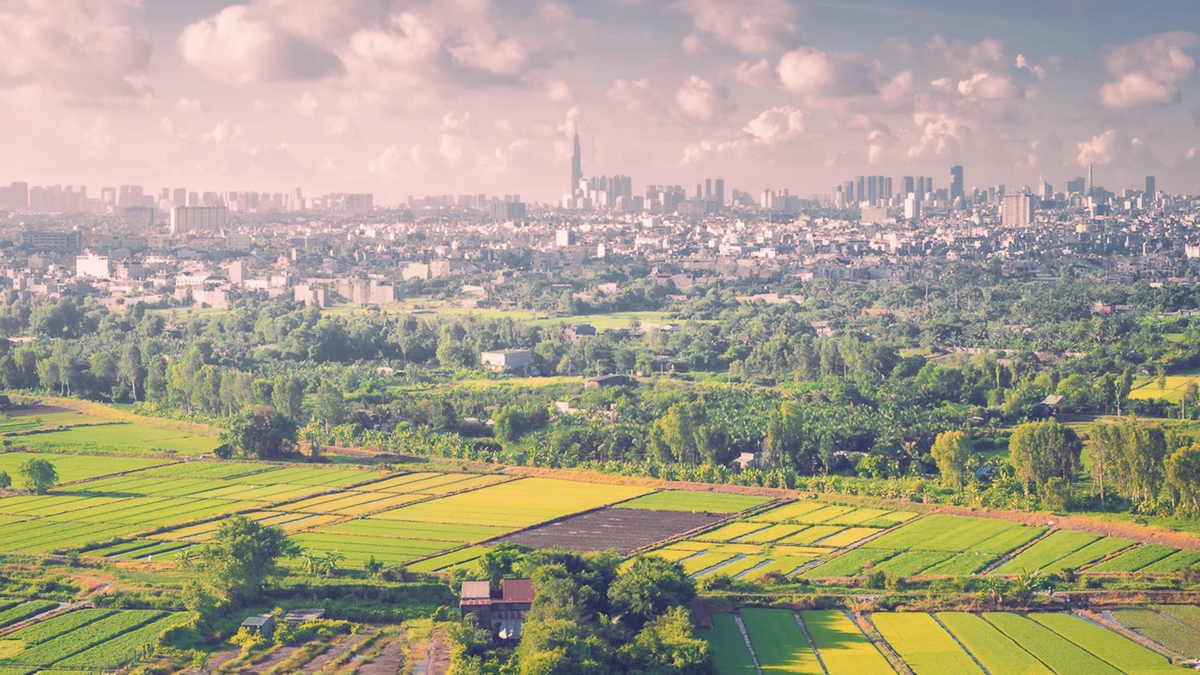
































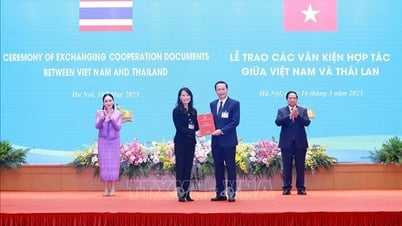




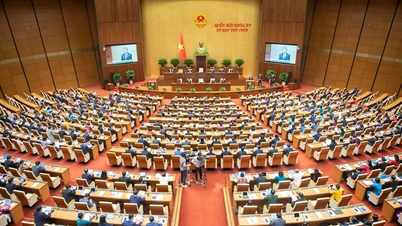











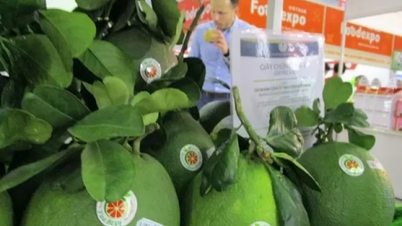













Comment (0)